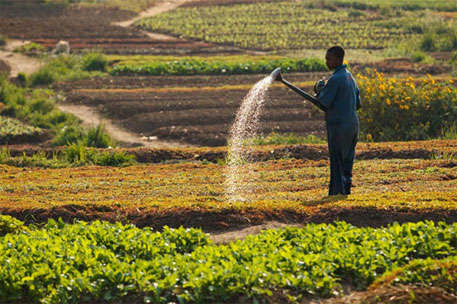
World days
The future belongs to The Tropics

Climate change, deforestation, urbanisation and demographic changes are just some of the challenges facing the tropical region – but each of them also has a direct effect on agriculture.
So the claim – from the UN – that ‘the future belongs to the tropics’ may be a bold one, but it’s valid. By 2050 – when the world’s population is expected to nudge 10 billion – the tropical region will host most of the world’s population and two-thirds of its children.
Bear in mind that the region also has just over half the world’s renewable water resources, that this is the region of the world considered most vulnerable to water stress, and that more people in this region experience undernourishment than anywhere else in the world – and it’s clear that the pressures on tropical agriculture to deliver high yields of quality crops, year after year, are immense.
The UN designated June 29 as International Day of the Tropics seven years ago, in 2014, with the intention of celebrating the ‘extraordinary diversity’ of the region, while highlighting its unique challenges and opportunities.
Unlike many of the UN’s ‘International Days’, the Day of the Tropics carries no annual theme: it’s designed to help people understand the region, to acknowledge its diversity and potential, and to share the region’s stories and expertise.
For us at FertiGlobal, it’s this final point – expertise – that we want most to talk about. We’re committed to providing the world’s farmers with solutions that help them to farm more sustainably, more responsibly and more productively. These objectives, underpinned by FertiGlobal’s innovative approach and often novel perspective on crop nutrition solutions – defined as ‘the FertiGlobal difference’ – have even greater relevance in the tropics.
Countries like India and the Philippines – where FertiGlobal has a strong presence – are firmly in the tropical agricultural zone. Crops in these regions are among the most diverse in the world: cereals, pulses, vegetables, nuts, spices, fruits, and few other regions of the world are so reliant on agriculture not just for food, but for socio-economic reasons: this is smallholder agriculture country, where whole families not only work on their farms but depend on them. But this is another challenge facing tropical agriculture: migration from rural to urban areas depletes the farming workforce, and a growing urban population places ever-greater pressure on a dwindling rural population to meet the demand for food. That’s why maximising crop efficiencies and optimising yields, in the face of coming climate change, is such an important priority for agriculture in the tropics.
At FertiGlobal, we always strive to put the farmer first: by understanding their needs for innovation, for yield optimisation, to reduce their impact on the environment – we also make progress towards our own objectives: delivering crop management for sustainable agriculture.
For this reason we’re proud to support the UN’s International Day of the Tropics: not just acknowledging its potential, but sharing the expertise that’s needed to realise that potential in agriculture.

